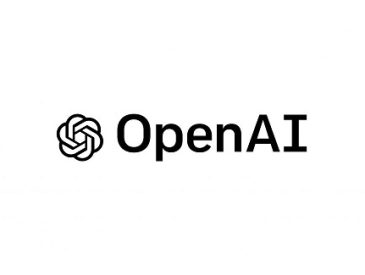Artificial intelligence (AI) has made significant strides in the medical field, but there is still room for improvement. Advanced prompting techniques have emerged as a formidable tool to enhance AI model performance, and one such technique, Medprompt, is revolutionizing AI performance in the medical domain.
Medprompt combines the principles of Chain of Thought (CoT) reasoning with other innovative strategies to generate high-quality output in image and text generation.
Extensive experiments have been conducted to test Medprompt against various foundation models using benchmark datasets focused on medical knowledge, and the results have been remarkable.
Medprompt outperforms all competitors across multiple medical-related datasets, surpassing specialist models trained in specific domains. By strategically employing prompting strategies such as dynamic few-shot selection, few-shot learning, self-generated chain of thought, and choice shuffle ensembling, Medprompt significantly enhances model performance.
In this article, we look into the revolutionary capabilities of Medprompt and its implications for the future of AI in the medical field.
Key Takeaways
- Medprompt is a technique that combines Chain of Thought (CoT) reasoning with two other techniques to achieve exceptional results in image and text generation.
- Medprompt outperformed all competitors across four medical-related benchmark datasets, proving the effectiveness of advanced prompting techniques in improving model performance.
- Medprompt can be applied to any knowledge area, not just the medical domain, to elicit high-quality output.
- Medprompt utilizes three prompting strategies: dynamic few-shot selection, few-shot learning, and self-generated chain of thought, which contribute to its effectiveness in improving model performance.
Advanced Prompting Techniques
Advanced Prompting Techniques contribute to the exceptional performance achieved by Medprompt in the medical domain. Medprompt combines Chain of Thought (CoT) reasoning with two other techniques to elicit high-quality output in image and text generation.
CoT prompting outlines the necessary steps for the AI to achieve the desired output. In testing Medprompt against four foundation models using medical-focused benchmark datasets, it outperformed all competitors across all datasets. This highlights the effectiveness of advanced prompting techniques in improving model performance.
The technique can be applied to any knowledge area, not just the medical domain, to elicit high-quality output. Medprompt utilizes three prompting strategies: dynamic few-shot selection, few-shot learning, and self-generated chain of thought. These strategies further contribute to the exceptional performance of Medprompt in the medical domain.
Medprompt Proves Value of Advanced Prompting Techniques
Medprompt demonstrates the significant value and effectiveness of advanced prompting techniques, as showcased in its exceptional performance in the medical domain.
In a series of tests, Medprompt was pitted against four different foundation models using benchmark datasets focused on medical knowledge, reasoning, and questions from medical board exams. The results were astounding. GPT-4 utilizing Medprompt outperformed all competitors across all four medical-related datasets. This success highlights the power of advanced prompting techniques in improving model performance.
Furthermore, Medprompt has the potential to excel not only in the medical domain but also in any knowledge area, generating high-quality output. The technique incorporates three prompting strategies: dynamic few-shot selection, few-shot learning, and self-generated chain of thought. Together, these strategies contribute to the remarkable performance of Medprompt in enhancing model capabilities.
Four Medical Benchmarking Datasets
The researchers utilized four benchmarking datasets focused on medical knowledge to evaluate the performance of Medprompt in the medical domain. These datasets were specifically designed to assess the capabilities of Medprompt in the field of medicine.
The four benchmark datasets used for testing included:
- MedQA, a multiple-choice question answering dataset
- PubMedQA, a Yes/No/Maybe QA dataset
- MedMCQA, a multi-subject multi-choice dataset
- MMLU, a dataset consisting of 57 tasks across multiple domains, with an emphasis on medical-related tasks.
By using medical-related tasks from the MMLU dataset, the researchers were able to gauge the effectiveness of Medprompt in improving model performance in the medical domain. The utilization of these benchmarking datasets provided valuable insights into the capabilities and potential applications of Medprompt in the medical field.
Table Shows How Medprompt Outscored Other Foundation Models
GPT-4 using Medprompt demonstrated superior performance compared to other foundation models, as shown in the table. The table compared the performance of Flan-PaLM 540B, Med-PaLM 2, GPT-4, and GPT-4 MedPrompt across all four medical-related datasets.
Medprompt consistently outperformed the other models in all four datasets, highlighting its effectiveness in improving model performance. These results indicate that Medprompt has the potential to surpass specialist models trained in specific domains.
This achievement is significant as it showcases the power of advanced prompting techniques in the medical domain. By combining CoT reasoning with other techniques, Medprompt elicits high-quality output and can be applied to any knowledge area, not just medicine. The success of Medprompt further solidifies its position as a revolutionary AI model in the medical domain.
Three Prompting Strategies
To enhance AI performance in the medical domain, three prompting strategies are employed. The first strategy is dynamic few-shot selection, which allows the model to select relevant examples during training. This strategy enables the model to adapt to specific tasks with just a few examples, improving its performance and accuracy.
The second strategy is self-generated chain of thought, which automates the creation of chain-of-thought examples using natural language statements. This technique helps the model understand the necessary steps to achieve the desired output, enhancing its reasoning capabilities.
Lastly, choice shuffle ensembling is used to combat position bias in multiple-choice question answering. By shuffling the order of choices, the model becomes more robust and unbiased in its decision-making process. These three prompting strategies contribute to the effectiveness of Medprompt in improving AI performance in the medical domain, ultimately revolutionizing healthcare.
Benefits of Medprompt in the Medical Domain
Medprompt’s advanced prompting techniques offer significant benefits in the medical domain, revolutionizing AI performance and transforming healthcare. The technique combines Chain of Thought (CoT) reasoning with dynamic few-shot selection, few-shot learning, and self-generated chain of thought. These strategies enhance the model’s ability to adapt to specific medical tasks, select relevant examples during training, and automate the creation of chain-of-thought examples using natural language statements.
Medprompt has been tested against four medical benchmarking datasets, including MedQA, PubMedQA, MedMCQA, and MMLU. The results show that GPT-4 using Medprompt outperformed other foundation models across all datasets, highlighting the effectiveness of the technique in improving model performance.
With its ability to surpass specialist models trained in specific domains, Medprompt has the potential to revolutionize healthcare by providing high-quality outputs and insights in the medical field.
Potential Applications of Medprompt Beyond Medicine
The advanced prompting techniques of Medprompt have the potential to extend beyond the medical domain and find applications in various fields. While Medprompt has proven its value in the medical domain by outperforming other foundation models in medical-related tasks, its capabilities can be applied to any knowledge area.
The technique’s ability to elicit high-quality output through chain of thought reasoning, dynamic few-shot selection, few-shot learning, self-generated chain of thought, and choice shuffle ensembling makes it versatile and adaptable to different domains. With Medprompt, it is possible to improve model performance and surpass specialist models trained in specific areas.
Future Developments in AI Performance With Medprompt
In the rapidly evolving field of AI, advancements in performance with Medprompt are poised to shape future developments. Medprompt has already demonstrated its value in improving model performance, outperforming other foundation models across various medical-related datasets. This technique combines advanced prompting techniques such as Chain of Thought (CoT) reasoning, dynamic few-shot selection, few-shot learning, self-generated chain of thought, and choice shuffle ensembling.
By leveraging these strategies, Medprompt has proven its ability to elicit high-quality output in image and text generation. With its success in the medical domain, there is potential for Medprompt to be applied to other knowledge areas, surpassing specialist models trained in specific domains.
As AI continues to advance, Medprompt is expected to play a significant role in pushing the boundaries of AI performance and revolutionizing various industries beyond medicine.
Conclusion: Medprompt’s Impact on AI Performance in Medicine
With its proven effectiveness in improving model performance and its potential for application across various knowledge areas, Medprompt is set to revolutionize AI performance in the medical domain.
The research conducted on Medprompt showcased its value in enhancing the performance of foundation models, surpassing other competitors in medical-related datasets. The technique’s success in outperforming specialist models trained in specific domains highlights its potential impact on AI performance in medicine.
Medprompt combines advanced prompting techniques such as Chain of Thought reasoning, dynamic few-shot selection, few-shot learning, self-generated chain of thought, and choice shuffle ensembling. These strategies contribute to the exceptional results achieved by Medprompt.
Frequently Asked Questions
How Does Medprompt Combine Cot Reasoning With Other Techniques to Achieve Exceptional Results?
Medprompt combines Chain of Thought (CoT) reasoning with other techniques, such as dynamic few-shot selection, few-shot learning, self-generated chain of thought, and choice shuffle ensembling, to achieve exceptional results in improving AI performance.
What Are the Benchmark Datasets Used for Testing Medprompt’s Performance?
The benchmark datasets used for testing Medprompt’s performance include MedQA, PubMedQA, MedMCQA, and MMLU. These datasets cover multiple medical-related tasks and provide a comprehensive evaluation of Medprompt’s effectiveness in improving model performance.
How Does GPT-4 Using Medprompt Compare to Other Foundation Models in Terms of Performance?
GPT-4 using Medprompt outperformed other foundation models in terms of performance across all four medical-related datasets. This demonstrates the superior effectiveness of Medprompt in improving model performance, surpassing specialist models trained in specific domains.
What Are the Three Prompting Strategies Used in Medprompt to Improve Model Performance?
The three prompting strategies used in Medprompt to improve model performance are dynamic few-shot selection, few-shot learning, and self-generated chain of thought. These strategies contribute to the effectiveness of Medprompt in enhancing model performance.
What Are the Potential Applications of Medprompt Beyond the Medical Domain?
Medprompt, a technique combining advanced prompting strategies, has the potential to be applied beyond the medical domain. It can elicit high-quality output in any knowledge area, demonstrating its effectiveness in improving model performance across various domains.
Final Thoughts
Medprompt has revolutionized AI performance in the medical domain by employing advanced prompting techniques. Through extensive experiments and benchmarking datasets, Medprompt has consistently outperformed other foundation models, showcasing its ability to enhance model performance.
With its strategic use of prompting strategies, Medprompt has the potential to surpass specialist models trained in specific domains. Its applications extend beyond medicine, and future developments in AI performance are expected with the continued advancement of Medprompt.
References
Get ready to dive into a world of AI news, reviews, and tips at Wicked Sciences! If you’ve been searching the internet for the latest insights on artificial intelligence, look no further. We understand that staying up to date with the ever-evolving field of AI can be a challenge, but Wicked Science is here to make it easier. Our website is packed with captivating articles and informative content that will keep you informed about the latest trends, breakthroughs, and applications in the world of AI. Whether you’re a seasoned AI enthusiast or just starting your journey, Wicked Science is your go-to destination for all things AI. Discover more by visiting our website today and unlock a world of fascinating AI knowledge.





